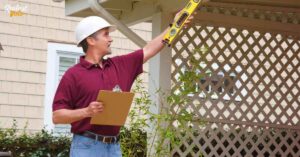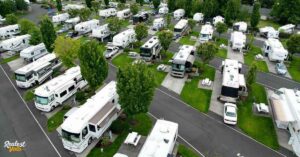Buying and owning real estate in Argentina as a US citizen is an achievable goal. As a non-resident, you have the same property rights as Argentine nationals. The key steps involve obtaining a tax identification number (CUIT), researching properties and locations, securing financing if needed, conducting thorough due diligence, negotiating the purchase, and completing the transfer of ownership.
While the process requires navigating legal and cultural nuances, working with experienced real estate professionals can streamline the journey. With proper planning and an understanding of the risks and tax implications, US citizens can successfully invest in Argentina’s diverse real estate market, from urban condos to rural land parcels.
Can American People Buy Property in Argentina?
Absolutely. As a US citizen, you have the right to purchase property in Argentina without any specific legal restrictions. The country welcomes foreign investment and has implemented policies to facilitate real estate transactions for non-residents and foreigners. Argentina’s real estate market offers unique opportunities, from bustling urban centers like Buenos Aires to scenic rural landscapes, making it an attractive destination for property investment.
Do You Need To Be A Local Or A Permanent Resident To Buy A Property In Argentina?
No, you don’t have to be a local or permanent resident to buy property in Argentina as a US citizen. Both residents and non-residents can acquire real estate, including residential and commercial properties, as well as land. This open policy towards foreign ownership has drawn interest from investors worldwide, seeking to capitalize on Argentina’s diverse real estate offerings.
Also Read: Buying Property In Colombia As A Foreigner: A Comprehensive Guide
What Are The Rights And Requirements To Buy Real Estate In Argentina As A US Citizen?
As a US citizen, you have the same rights as Argentine nationals when it comes to buying property.
There are a few legal requirements you need to fulfill:
- Obtain a tax identification number (Clave Única de Identificación Tributaria or CUIT) from the Argentine tax authority (AFIP). This unique number is essential for legal transactions and tax purposes.
- Provide proof of your legal entry into the country (passport with entry stamp or residency permit, if applicable).
- Have sufficient funds or financing to complete the purchase. Argentina’s property market offers options for various budgets and investment goals.
- Comply with any applicable zoning laws and regulations for the specific property type and location. These can vary across different regions and municipalities.
What About Buying Land In Argentina As An American?
US citizens can also purchase land in Argentina, whether it’s for residential, commercial, or agricultural purposes. The country’s diverse geography offers opportunities for various land investments, from urban plots to vast rural areas suitable for farming or ranching.
It’s crucial to understand the zoning laws and land use regulations in the area you’re interested in, as these can vary significantly depending on the location and intended use. Working with local experts can help navigate these complexities and ensure compliance with all relevant regulations.
Also Read: Buying Property in Argentina as a Foreigner: A Full Guide
Buying Property And Becoming A Resident In Argentina
While becoming a resident is not a requirement to buy property in Argentina, some US citizens may consider obtaining residency for easier property management or potential tax benefits. Argentina offers temporary and permanent residency options, and owning real estate can be a pathway to residency under certain circumstances.
For example, the Temporary Residency for Property Owners program allows non-residents who purchase property in Argentina valued above a certain threshold (currently around USD 20,000) to obtain a temporary residency permit. This can facilitate easier travel, property management, and potential tax advantages.
After maintaining temporary residency for a specific period (usually 2-3 years), property owners may be eligible to apply for permanent residency, granting them even more rights and benefits within the country.
What is the process to buy property in Argentina as an American?
How To Get Started? What Are The Different Steps?
The process of buying property in Argentina as a US citizen typically involves the following steps:
- Research and Property Search: Identify the area and type of property you’re interested in, whether it’s a residential home, commercial space, or land. Work with a reputable real estate agent or attorney who can guide you through the process and provide local market insights.
- Obtain a CUIT: As mentioned earlier, you’ll need to obtain a tax identification number (CUIT) from the Argentine tax authority (AFIP). This can be done through their website or with the assistance of a legal professional. The CUIT is a crucial document for any financial transactions in Argentina.
- Secure Financing (if needed): If you’re not paying cash, explore financing options with local banks or international lenders. Keep in mind that Argentine banks may have specific income requirements and terms for non-residents, so it’s essential to research and compare options thoroughly.
- Title Search and Due Diligence: Conduct a thorough title search and due diligence on the property to ensure there are no outstanding liens, debts, or legal issues. This step is crucial to avoid potential disputes or complications down the line. Working with a reputable real estate attorney can help navigate this process efficiently.
- Negotiate and Sign the Purchase Agreement: Once you’ve found the right property, negotiate the terms and conditions with the seller, including the purchase price, closing date, and any contingencies. Have a legal professional review the purchase agreement before signing to ensure your interests are protected.
- Transfer of Ownership: After signing the purchase agreement, you’ll need to complete the transfer of ownership process, which may involve paying the applicable property transfer tax (see the “Taxes” section below).
- Registration and Documentation: Finally, register the property in your name at the local Real Estate Registry and obtain all necessary documentation, such as the new property title deed. This step officially establishes your ownership and legal rights over the property.
Risks And Potential Pitfalls Related To Property Investment In Argentina
While Argentina presents attractive real estate investment opportunities, it’s essential to be aware of potential risks and pitfalls:
- Economic Instability and Inflation: Argentina has experienced periods of economic volatility, high inflation rates, and currency devaluation, which can impact property values and purchasing power. Monitoring economic indicators and consulting with financial experts can help mitigate these risks.
- Legal and Regulatory Challenges: The legal system and bureaucracy in Argentina can be complex, and regulations may change frequently. It’s crucial to work with experienced legal professionals to navigate any potential hurdles or disputes and ensure compliance with all applicable laws.
- Cultural Differences: As a foreigner, you may encounter cultural differences in business customs, negotiations, and personal relationships. Understanding local norms and customs can help facilitate smoother transactions and better integration into the community.
- Market Risks: Like any real estate market, Argentina’s property market is subject to fluctuations in supply, demand, and pricing. Conducting thorough market research and analysis is essential to mitigate potential risks and make informed investment decisions.
- Political and Social Factors: Argentina’s political landscape and social dynamics can influence the real estate market. Staying informed about current events and consulting with local experts can help you navigate any potential impacts on your investment.
Tax Implications For US Citizens Buying Property In Argentina
Purchasing property in Argentina as a US citizen can have tax implications, both in Argentina and the United States. It’s essential to understand these implications and consult with tax professionals in both countries to ensure compliance and minimize potential tax liabilities.
Case Study: Maria, a US citizen, purchased a vacation home in Buenos Aires a few years ago. She consulted with a local tax advisor who helped her navigate the Argentine tax system and understand her obligations as a non-resident property owner. By properly reporting her rental income and expenses, Maria was able to legally minimize her tax burden while enjoying her Argentine property.
Taxes
Property Transfer Tax
When buying a property in Argentina, you’ll need to pay a property transfer tax (Impuesto a la Transferencia de Inmuebles), which is typically around 1.5% of the property’s fiscal value or the sale price, whichever is higher. This tax is paid by the buyer and is due upon the transfer of ownership.
It’s important to note that the property transfer tax rate can vary slightly across different provinces and municipalities, so it’s advisable to consult with a local real estate professional or attorney for the most accurate and up-to-date information.
Annual Property Tax
As a property owner in Argentina, you’ll be responsible for paying an annual property tax (Impuesto Inmobiliario) based on the property’s fiscal value. The tax rate varies depending on the location and jurisdiction but generally ranges from 0.5% to 1.5% of the property’s fiscal value.
For example, in the city of Buenos Aires, the annual property tax rate is currently around 0.9% of the property’s fiscal value. However, in some provinces like Mendoza, the rate can be higher, around 1.2% to 1.5%.
It’s essential to budget for this recurring expense and stay informed about any changes in property tax rates, as they can impact your overall investment costs.
Capital Gains Tax
If you sell your property in Argentina for a profit, you may be subject to capital gains tax (Impuesto a las Ganancias). The tax rate for non-residents is generally 15% of the net capital gain, which is calculated as the difference between the sale price and the adjusted cost basis (purchase price plus any eligible improvements or expenses).
It’s important to note that certain exceptions and exemptions may apply, particularly if you’ve held the property for an extended period or if you reinvest the proceeds into another property within a specific timeframe.
“As a US citizen, it’s crucial to understand the potential tax implications of owning property in Argentina. Working with knowledgeable tax professionals in both countries can help you navigate the complexities and ensure compliance with all relevant tax laws.” – Sarah Johnson, Financial Advisor
Frequently Asked Question
Can Us Citizens Freely Buy Property In Argentina?
Yes, US citizens have the same rights as Argentine nationals when it comes to purchasing real estate, whether residential, commercial, or land.
Do I Need To Be A Resident Of Argentina To Buy Property There?
No, residency is not required for US citizens to purchase property in Argentina. Both residents and non-residents can acquire real estate.
What Are The Main Steps Involved In The Buying Process?
The key steps include obtaining a tax ID (CUIT), finding a property, securing financing if needed, conducting due diligence, signing the purchase agreement, transferring ownership, and registering the property.
Are There Any Special Taxes For Foreign Buyers?
Yes, buyers must pay a property transfer tax of around 1.5% of the purchase price or fiscal value (whichever is higher). Annual property taxes and potential capital gains taxes also apply.
Should I Hire A Local Real Estate Professional?
It’s highly recommended to work with a reputable local real estate agent, attorney, and tax advisor to navigate the legal, cultural, and financial complexities involved.
Final Words
Owning real estate in Argentina as a US citizen can be a rewarding experience, offering unique investment opportunities and potential for long-term capital appreciation. However, it’s crucial to understand the legal requirements, tax implications, and potential risks involved. By conducting thorough research, working with experienced professionals, and being mindful of cultural differences and economic factors, you can navigate the process successfully and make informed decisions.
Real estate investments are long-term commitments, and it’s essential to have a solid understanding of the local market, regulations, and your personal financial goals. With careful planning and due diligence, you can potentially benefit from the opportunities that Argentine real estate has to offer.
One strategy that some US investors explore is partnering with local Argentine investors or developers. This can provide valuable on-the-ground expertise, cultural insights, and help mitigate some of the risks associated with navigating a foreign market.














